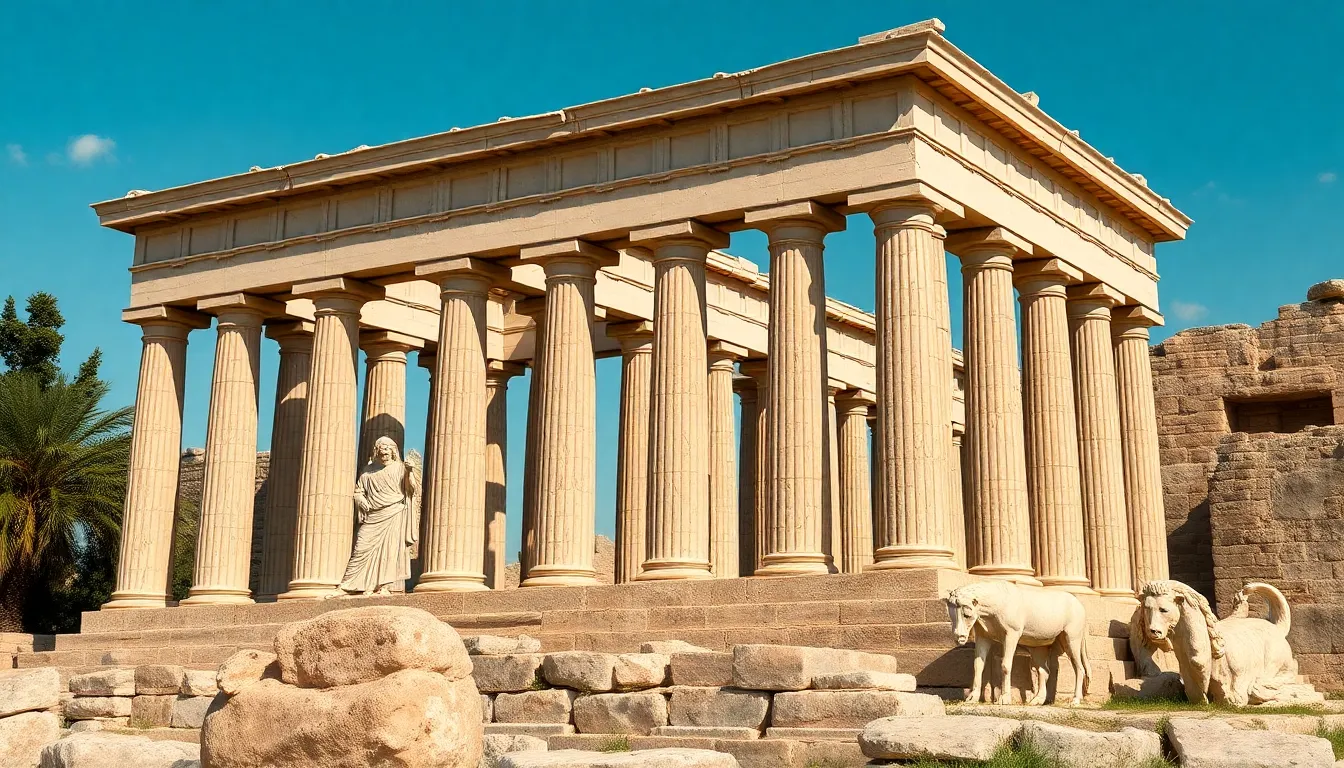Homer’s Poetic Legacy: How His Works Shaped Future Generations
I. Introduction
Homer, the ancient Greek poet, is often regarded as one of the most significant figures in the history of literature. His epic poems, “The Iliad” and “The Odyssey,” have not only defined the genre of epic poetry but have also influenced countless generations of writers, philosophers, and artists. These works capture the complexities of human experience, exploring themes of heroism, honor, love, and the capricious nature of fate. The purpose of this article is to delve into Homer’s profound impact on literature and culture, examining how his epics have shaped the narrative traditions that followed.
II. The Historical Context of Homer’s Works
To understand the significance of Homer’s contributions, it is essential to consider the historical context in which he wrote. Ancient Greek society was characterized by a rich tapestry of culture, politics, and philosophy. The period known as the Archaic Age (circa 800-500 BCE) saw the emergence of city-states, the development of written language, and the flourishing of art and thought.
Homer’s poetry was deeply rooted in the oral tradition, a storytelling method that relied on memorization and recitation. This method allowed poets to preserve and transmit cultural narratives before the advent of written texts. Key themes in Homer’s narratives reflect the values and beliefs of ancient Greek society, including:
- Heroism and the heroic code
- The importance of honor and reputation
- The role of the gods in human affairs
- The nature of fate and free will
III. Literary Techniques and Innovations
Homer’s epics are marked by their innovative literary techniques and stylistic choices. The structure of “The Iliad” and “The Odyssey” is carefully crafted, employing a combination of narrative and dialogue that creates a dynamic storytelling experience. Some notable features of Homeric poetry include:
- Similes: Homer is famous for his extended similes, often comparing human experiences to natural phenomena, which enriches the imagery and emotional depth of the narrative.
- Epithets: The use of fixed epithets (e.g., “swift-footed Achilles”) serves to enhance character recognition and contribute to the rhythmic quality of the poetry.
- Narrative Techniques: Homer employs various narrative techniques, including in medias res (beginning the story in the middle of the action) and flashbacks, to create suspense and engage the audience.
The impact of these poetic devices on later writers cannot be overstated. Homer set a standard for epic storytelling that would influence the structure and style of countless works in the Western literary tradition.
IV. Influence on Classical Literature
Homer’s works were widely received and celebrated in ancient Greece and Rome. His influence is evident in the writings of notable figures such as Virgil and Ovid, who drew inspiration from Homeric themes, characters, and narrative techniques. For instance:
- Virgil: In “The Aeneid,” Virgil mirrors the epic journey of Odysseus through the character of Aeneas, emphasizing themes of duty and destiny.
- Ovid: Ovid’s “Metamorphoses” includes numerous references to Homeric tales, showcasing the fluidity of myth and the interconnectedness of Greek and Roman traditions.
Moreover, Homeric themes permeated classical tragedies and comedies, influencing playwrights such as Sophocles and Euripides, who explored the complexities of human nature and divine intervention, echoing the moral dilemmas faced by Homer’s heroes.
V. Homer’s Legacy in the Middle Ages and Renaissance
The legacy of Homer continued through the Middle Ages, where his texts were preserved and interpreted by scholars. Manuscripts of “The Iliad” and “The Odyssey” were copied and studied, ensuring that Homer’s influence endured despite the cultural shifts of the time.
During the Renaissance, a renewed interest in classical antiquity led to the revival of Homer’s works. Key figures such as:
- Petrarch: Emphasized the importance of classical texts in shaping modern thought.
- Castiglione: In “The Book of the Courtier,” referenced Homeric virtues as central to the ideal courtier.
Scholars and artists drew from Homer’s narratives, inspiring a wealth of literature, painting, and sculpture that reflected the values of the time.
VI. Modern Interpretations and Adaptations
In contemporary literature and art, the relevance of Homer’s themes remains profound. Today’s writers and artists continue to explore the universal issues presented in his epics, such as:
- Heroism and moral ambiguity
- Conflict and reconciliation
- Love and longing
Adaptations of Homer’s works are prevalent in film, theater, and popular culture. Notable examples include:
- The film “Troy” (2004), which reimagines the events of “The Iliad.”
- The Coen Brothers’ “O Brother, Where Art Thou?” (2000), a modern retelling of “The Odyssey.”
Moreover, scholarly reinterpretations of Homer’s works provide fresh perspectives, examining issues such as gender, power dynamics, and cultural context, ensuring that Homer’s legacy continues to evolve.
VII. Thematic Resonance Across Cultures
One of the most compelling aspects of Homer’s epics is their exploration of universal themes that resonate across cultures and eras. Themes such as heroism, fate, and love are not confined to Greek mythology but are reflected in epic traditions worldwide. For example:
- The Epic of Gilgamesh: Explores the quest for immortality and the bonds of friendship.
- The Ramayana: Investigates duty, honor, and the struggles between good and evil.
This comparative analysis reveals the shared human experiences that transcend cultural boundaries, showcasing the timeless nature of Homer’s narratives.
VIII. Conclusion
In summary, Homer’s enduring impact on literature and culture is undeniable. His epic poems have shaped the narrative structure and thematic exploration of countless works that followed, influencing writers and artists across generations. As we reflect on the importance of studying Homer in today’s context, we recognize the relevance of his themes in addressing contemporary issues. Engaging with Homeric texts not only enriches our understanding of ancient Greece but also provides insights into the human condition that remain pertinent in our modern world.
We encourage readers to delve into the rich world of Homer’s epics, exploring their complexities and appreciating their lasting legacy in the tapestry of literature.




